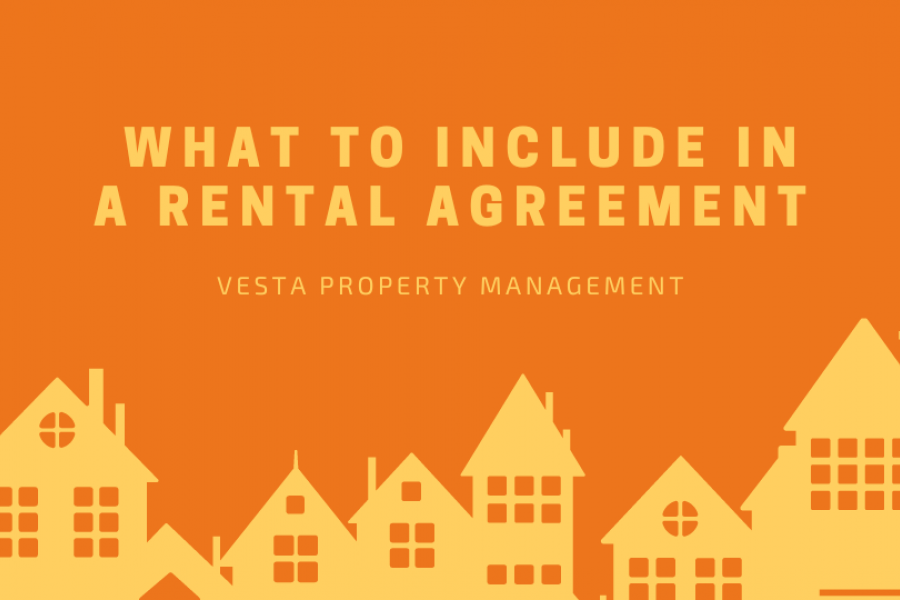
A rental agreement is a crucial document that outlines the terms and conditions of a tenancy, protecting both landlords and tenants.
Whether you're a property owner preparing to rent out your space or a prospective tenant about to sign on the dotted line, understanding the key components of a rental agreement is essential.
This comprehensive guide will walk you through the vital elements that should be included in every rental agreement. Let's look into the critical components that should be present in every rental agreement.
Names of All Tenants
One of the first and most crucial elements to include in a rental agreement is the names of all tenants who will be residing in the property.
This section should clearly list the full legal names of every adult who will be living in the rental unit.
Including all tenants' names serves several important purposes such as:
- Legal accountability
- Occupancy control
- Communication clarity
Remember to update this section if new tenants are added or existing tenants leave during the lease term, always with the landlord's approval and a proper lease amendment.
Limits on Occupancy
This section of the rental agreement should specify the maximum number of people allowed to live in the rental unit. It’s important for several reasons such as:
- Legal compliance: Many local laws and building codes set maximum occupancy limits based on the size and layout of a dwelling.
.jpg)
- Property protection: Controlling the number of occupants helps prevent excessive wear and tear on the property.
- Safety: Ensuring that the number of residents doesn't exceed what the unit was designed for maintains a safe living environment.
Term of the Tenancy
The term of the tenancy is a fundamental aspect of any rental agreement. This section should clearly state:
- The start date of the lease
- The end date (for fixed-term leases)
- Whether it's a fixed-term or month-to-month agreement
- Any provisions for lease renewal or termination
For fixed-term leases, specify what happens at the end of the term. For month-to-month agreements, detail the notice period required for either party to terminate the lease.
Including clear information about the tenancy term helps both parties understand their commitments and plan accordingly.
Rent
The rent section is often considered the heart of a rental agreement. It should provide comprehensive details about the financial aspects of the tenancy, including:
- The exact amount of rent due
- When rent is due
- Acceptable payment methods
- Where and how rent should be paid
- Any grace periods for late payments
- Late fees and their terms
- Consequences of returned checks or failed payments
Be sure to clearly state whether utilities are included in the rent or if they are the tenant's responsibility.
Deposits and Fees
Security deposits and other fees are standard in most rental agreements. This section should detail:
- The amount of the security deposit
- Conditions for its use and return

- Any non-refundable fees e.g., cleaning fee, pet fee
- Move-in fees or charges
Clearly explain how the security deposit will be held and the conditions under which deductions may be made.
Repairs and Maintenance
A well-defined repairs and maintenance section can prevent many common landlord-tenant disputes. This part of the agreement should cover:
- The landlord's responsibilities for maintaining the property
- The tenant's responsibilities for everyday upkeep
- Procedures for reporting necessary repairs
- Timeframes for addressing different types of maintenance issues
- Any restrictions on tenant alterations to the property
Clearly state how tenants should report repair needs and provide contact information for maintenance requests. Specify any maintenance tasks that tenants are expected to handle.
It's also important to address what happens in case of damage caused by the tenant, their guests, or pets, and who is responsible for the cost of repairs in various scenarios.
Entry to Rental Property
Respecting tenant privacy while maintaining the landlord's right to access the property is crucial. This section should outline:
- Circumstances under which the landlord may enter the property
- Notice requirements for landlord entry
- Emergency entry provisions
- Tenant responsibilities for allowing access for repairs or inspections
Clearly state the notice period and the methods by which notice will be given.
.jpg)
Restrictions on Tenant Illegal Activity
To protect the property and ensure a safe environment for all residents, include a clause prohibiting illegal activities. This section should:
- Explicitly forbid any illegal activities on the premises
- State that such activities are grounds for immediate termination of the lease
- Specify examples of prohibited activities
While it might seem obvious, clearly stating these restrictions in the rental agreement provides legal protection and clarity for both parties.
Pets
If pets are allowed in the rental property, this section should detail:
- Types and sizes of pets permitted
- Any additional pet deposits or fees
- Responsibilities for pet-related damages
- Rules regarding pet behavior and nuisance issues
If pets are not allowed, clearly state this policy and any consequences for violating it. Consider addressing service animals and emotional support animals, which may be subject to different rules under fair housing laws.
Other Restrictions
This section can cover various other rules and restrictions, such as:
- Smoking policies
- Noise restrictions
- Rules about subletting or short-term rentals
- Parking regulations
- Use of common areas in multi-unit buildings
- Restrictions on business use of the rental property
Conclusion
A comprehensive rental agreement is the foundation of a successful tenancy. By including all these essential elements, you create a clear understanding between landlords and tenants, reducing the likelihood of disputes and ensuring a smooth rental experience for all parties involved.
At Vesta Property Management, we understand the importance of a well-crafted rental agreement. Our experienced team can help you create a tailored agreement that protects your interests while fostering positive landlord-tenant relationships.
Contact us today to ensure your rental agreement is comprehensive, legally sound, and tailored to your specific needs.